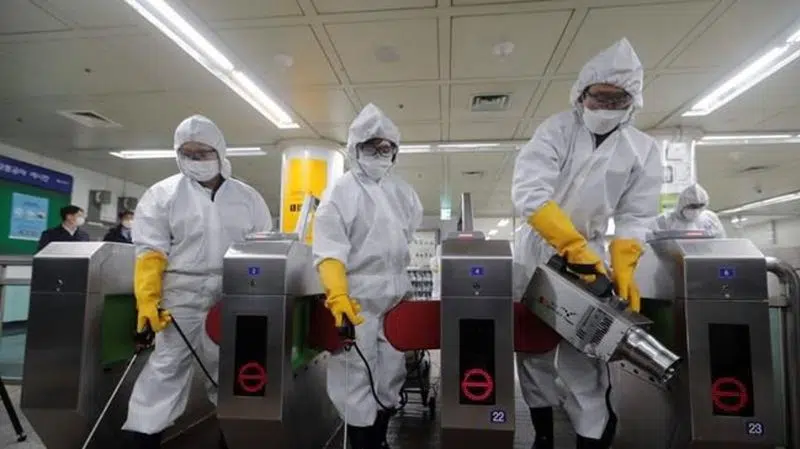
B.C. couple in South Korea say country is paralyzed by fear of new coronavirus
Courtney McCann was used to giving lectures in her classroom, not receiving them at her local convenience store.
But the sight of her ill-fitting mask turned the tables as she was browsing the near-deserted aisles on a recent visit, sparking fear in the man behind the counter, she recounted from her home in Changwon, South Korea.
The masks are considered by many to be a key defence in the battle against a coronavirus outbreak that’s seen the number of Korean cases climb from 104 on Feb. 20 to more than 2,300 on Friday.
The too-big mask, which gaped around her narrow nose, wouldn’t have drawn any attention days earlier, but things have changed drastically since then, said McCann, who moved from Victoria in November to teach English in the city on the southeastern coast of the peninsula nation.


